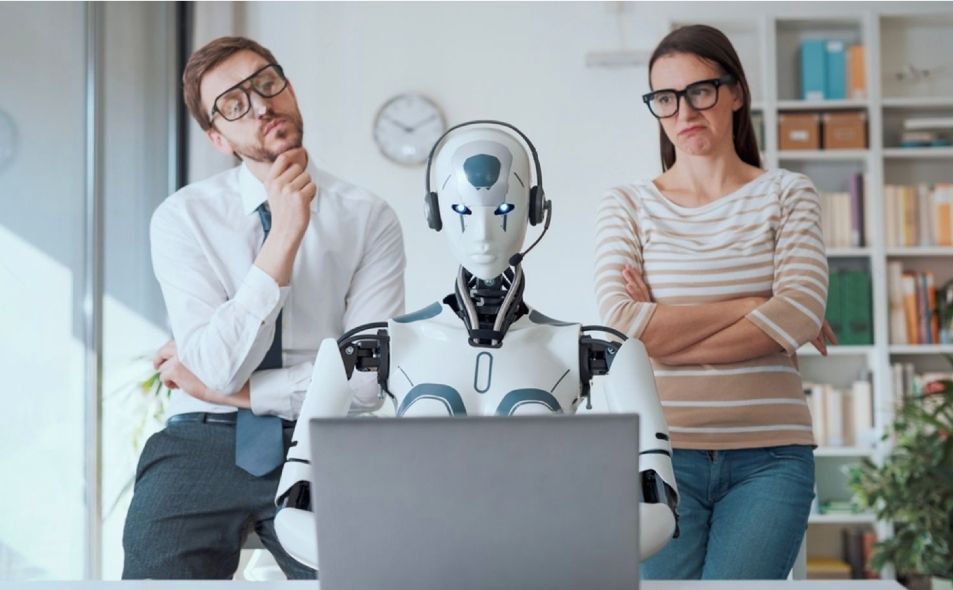Artificial Intelligence (AI)….has been all the buzz lately and you can’t go one day without hearing or seeing something about it. I was recently talking with an old colleague about process improvements and the use of automation, he then semi-jokingly said “engineers engineered themselves out of a job by developing AI”. This got me thinking, will AI actually take over engineering jobs? The short answer: no. However, it will profoundly transform the professional landscape, making it essential for engineers to adapt.
The Current Role of AI in Engineering
AI has already started making inroads into the engineering sector by optimizing processes, reducing errors, and speeding up tasks. Machine learning algorithms, for instance, can analyze vast amounts of data far more quickly than a human could. This can improve everything from product design to manufacturing efficiency.
In civil engineering, AI is being used to predict structural failures before they happen. In the automotive industry, it’s being employed to enhance design and simulate real-world scenarios. The medical device industry, where innovation and precision are paramount, is seeing AI used in quality control and predictive maintenance.
Yet, despite these advancements, it is far from capable of completely replacing human engineers. Instead, AI excels at tasks that involve repetitive processes and data analysis—things that traditionally consumed a lot of engineers’ time but didn’t require in depth problem-solving skills. It’s particularly useful in automating routine tasks, optimizing designs, and predicting outcomes based on historical data. For instance, in mechanical engineering, AI can optimize the design of mechanical parts by suggesting improvements based on past performance simulations.
However, it still struggles with more complex tasks that require human intuition, creativity, and experience. Engineering is not just about crunching numbers—it’s about problem-solving in unpredictable environments, understanding user needs, working within constraints, and making decisions when the data isn’t always clear.
Engineers Will Evolve—Not Disappear
Rather than replacing engineers, AI will change the nature of engineering work. Engineers in certain industries will likely spend less time on manual calculations and routine tasks and more time on creative problem-solving, overseeing the AI-driven processes, and making high-level decisions.
For example, in the medical device industry, where precision and regulatory compliance are critical, engineers will still be needed to ensure that AI-driven designs meet strict quality standards. Their role may shift from hands-on design to overseeing AI-driven simulations and optimizations, ensuring that the final product is both innovative and compliant with regulations.
Moreover, engineers will need to develop new skills to stay relevant. Familiarity with AI tools, data analytics, and machine learning algorithms will become as important as understanding the 1st law of thermodynamics. This shift will likely lead to a new breed of engineers—those who are not just technically proficient but also comfortable utilizing AI systems.
The Human Element AI Can’t Replicate
One of the most important reasons why engineers will still be in high demand for many years to come is…AI cannot replicate is human creativity. Designing innovative solutions, whether for a cutting-edge medical device, life saving drug or sustainable energy system, requires thinking outside the box and pushing the boundaries to what’s possible. It may provide insights or suggest optimizations, but it’s the human mind that drives true innovation.
In Conclusion, while AI has and will continue to transform the landscape of engineering, it’s unlikely to replace engineers altogether. Instead, it will be a powerful tool that enhances the work of engineers, automates mundane tasks, and opens up new possibilities for innovation. The key for engineers will be to embrace AI, learn how to harness it, and continue to develop the human skills that AI cannot replicate.
Rather than viewing AI as a threat, we should see it as an opportunity to offload routine tasks and focus on what we do best: solving complex problems, innovating, and making the world a better place.

